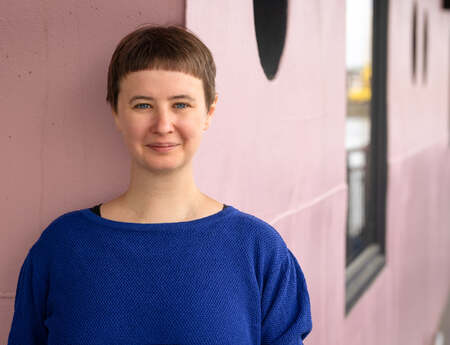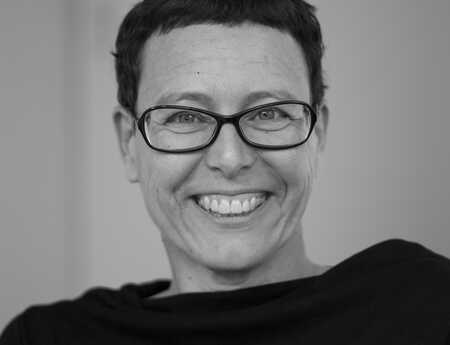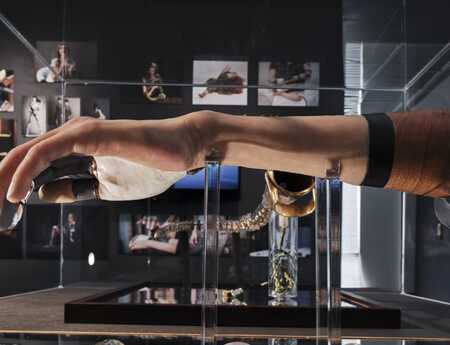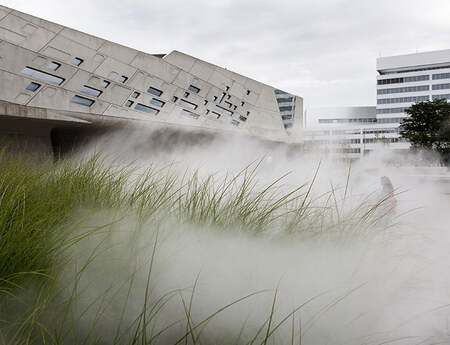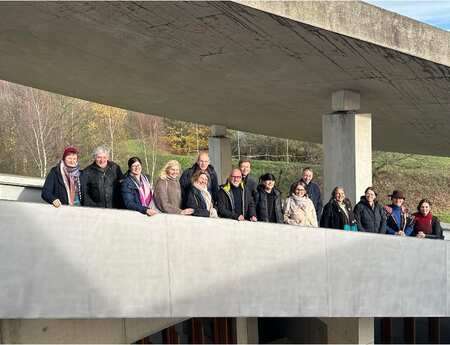The Fragrance of the Ocean
In his work Eduardo Palomares combines sculptures, videos and sketches with fragrances. We visited his installation Blooming Ocean and talked to him about how calmness smells and why his artworks can be found underwater.
When did you work with fragrances for the first time?
My first work with fragrances was pʁɛˈzɛnt͡s. What I did was to write a poem about being present. Then I searched for fragrances which reminded me of the Mediterranean – like lavender, thyme, rosemary, roses, and jasmine. The idea was that the visitor could experience a fragrance, released from a bottle, while reading a poem. It’s like being present in the past.
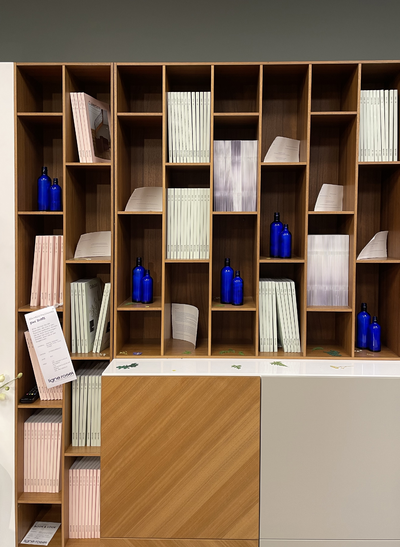
Why do you use different scents in your work?
I would say that my work is based on two main pillars: How we relate to nature, or more precisely, to the environment, and how changes and time intervene in the environment. When I’m in nature, I feel more connected to myself. Fragrances are always there. Especially when I’m swimming in the sea, there’s always this scent, the smell. This is the moment when I’m present. I felt that fragrances should be in my work because I want people to experience in a way what I experience when I’m outside in the environment.
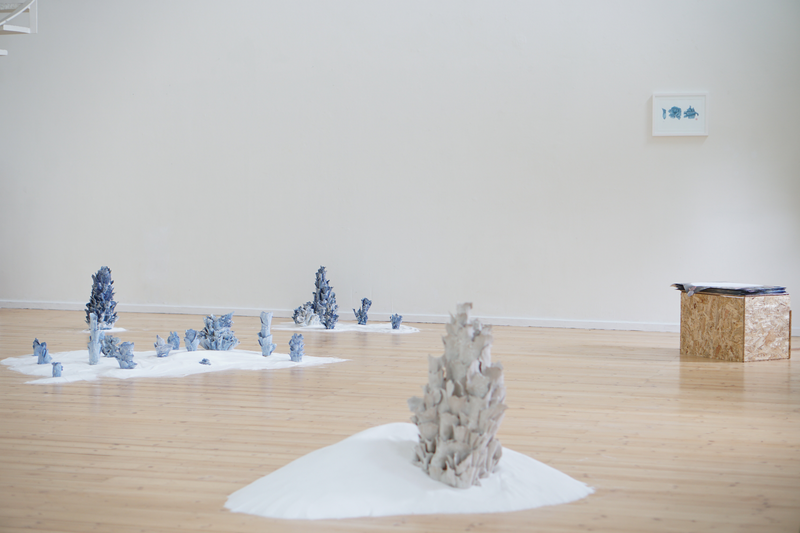
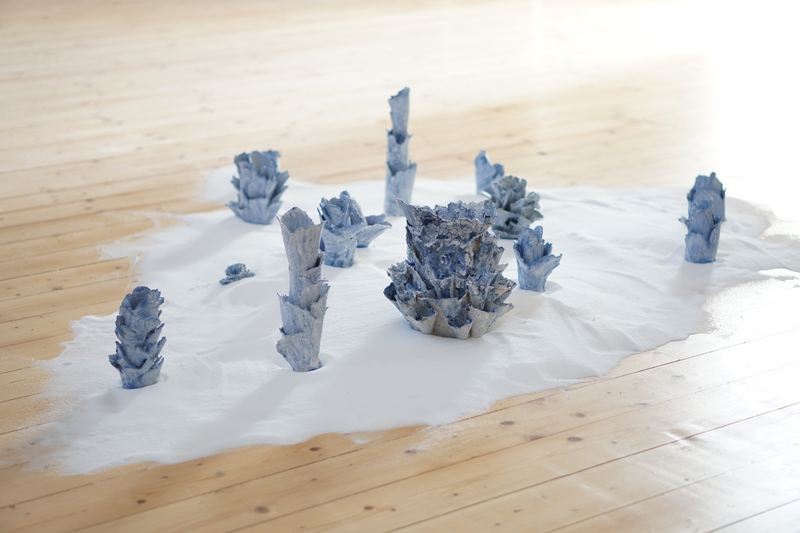
The combination of the video showing waves and different oceans, the ceramics in the sand on the floor, the fragrance … standing in this room I feel really calm.
Wonderful! This was the goal.
My personal goal is to be calm in my life. I hope you can experience that in my artwork.
Can you tell me more about how this installation developed?
The process began two years ago and is still ongoing. It all started when I was working with blue porcelain and created a flower that somehow reminded me of the sea. So why not bring the flower to the sea? This fictitious plant was an excellent reason to find out how everything in our environment is connected, how everything is made from the same material – and also gave me a reason to travel more.
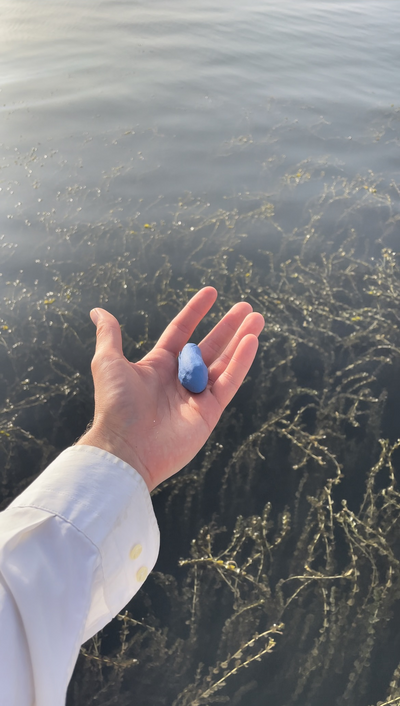
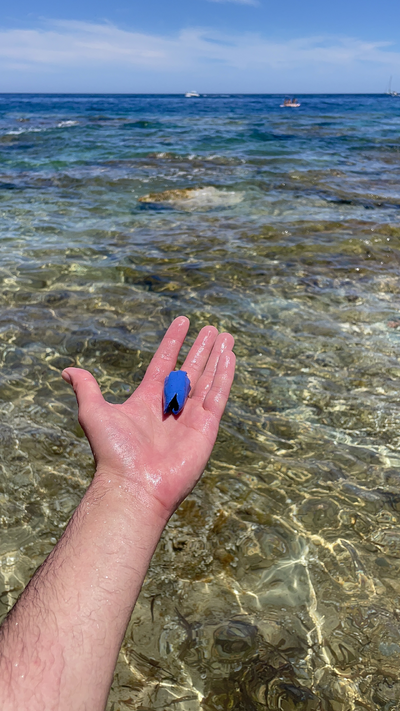
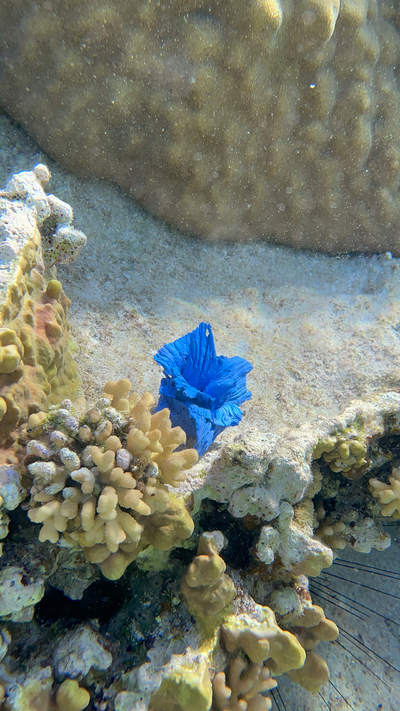
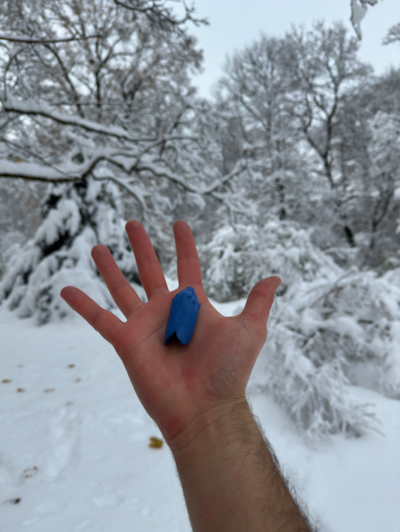
To where did the flower take you?
I took the flowers with me to everywhere I travelled. For example, I took it to the Red Sea, into a lagoon in Egypt and to the Mediterranean Sea around Mallorca. The idea of taking clay from nature and then giving it back to the sea fascinates me.
Are the fruits and flowers here on the floor, the ones that you take with you?
No. The flowers in the exhibition are all in the process of dying, that’s why they are white. The only way of seeing the real flower is in its natural habitat. I always left the flower at the places to which I travelled. The blue porcelain is non-toxic. Some of them might still be where I left them. I documented these trips with photos and videos that are now part of this installation.
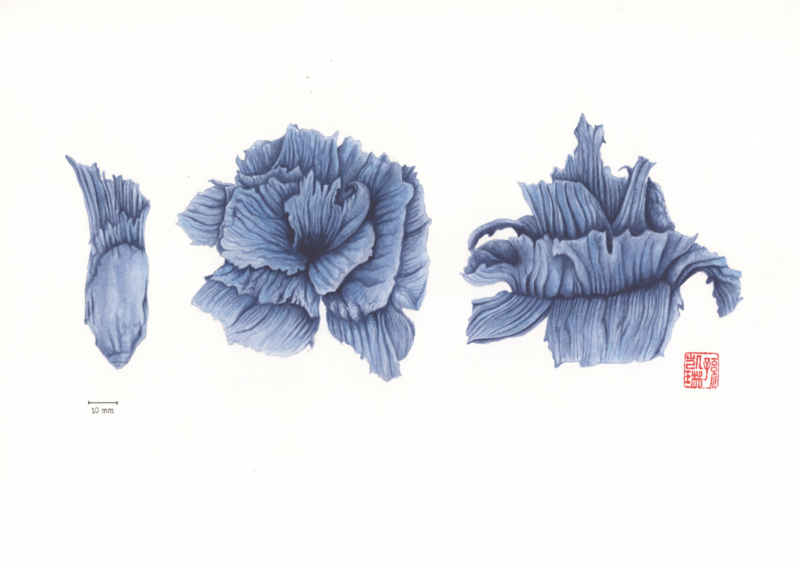
Who did the drawings?
I contacted the botanical institute in Munich to find out more about this plant. Through the institute I met Kailin Sun. She gave me a great deal of scientific background on how plants exist. She also did the drawings.
Last but not least: the fragrance that fills this room. How was that produced?
Since I’m working with fragrances, I wanted to create the fragrance of the sea. At the beginning, for pʁɛˈzɛnt͡s, I simply bought scented oils. For an exhibition I did in Austria, I produced the fragrances through distillation with an alembic. I also tried out enfleurage, a French technique, using vegetable or animal fat to retain the scent of flowers.
For Blooming Ocean I worked together with Camille Pouthé from Givaudan. She was interested in doing art with fragrances. She is such a visionary. After talking a lot about what would make be most appropriate for the installation, a perfumer from the company in Paris developed four different fragrances – and I could simply choose the one I liked the most. I was very lucky.
What are you working on right now?
Well, Blooming Ocean is still ongoing. I am collecting all the information about the plant and am planning to publish a catalogue about it. There is also an underwater exhibition in Venezuela which I am presently working on as well as an exhibition in Munich at the Instituto Cervantes.
Sounds like a lot! You might need to find calmness again?
Well, I have tried to meditate for many years. I realized that the way I meditate is moving. Walking or swimming – at the end you are moving through the space. And this is Blooming Ocean.
The interview was conducted by Elisabeth Pilhofer in English. Thank you to Sybille Hayek for the German translation!

